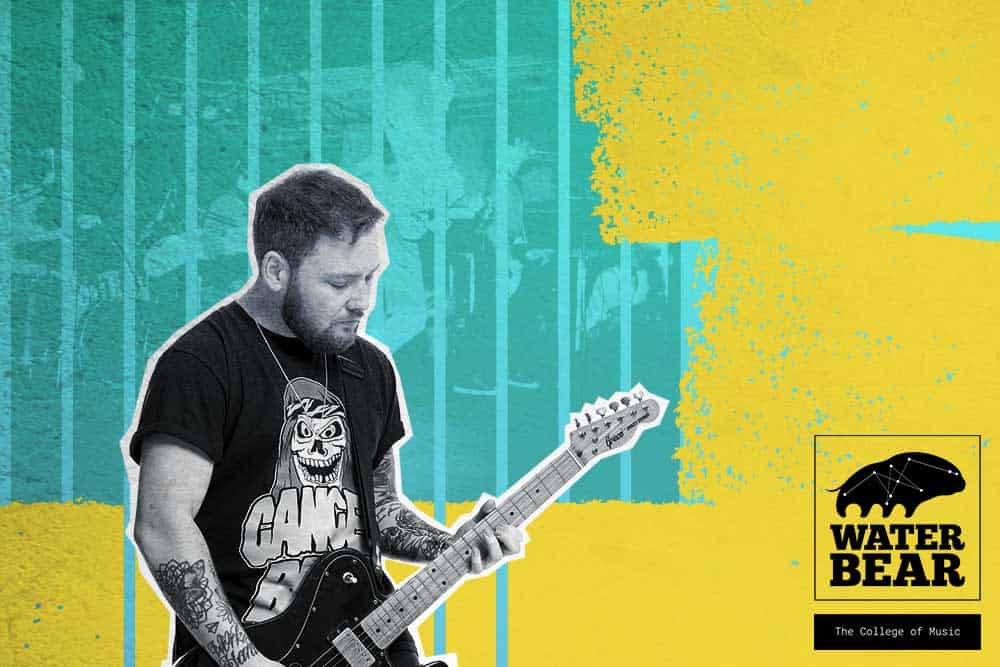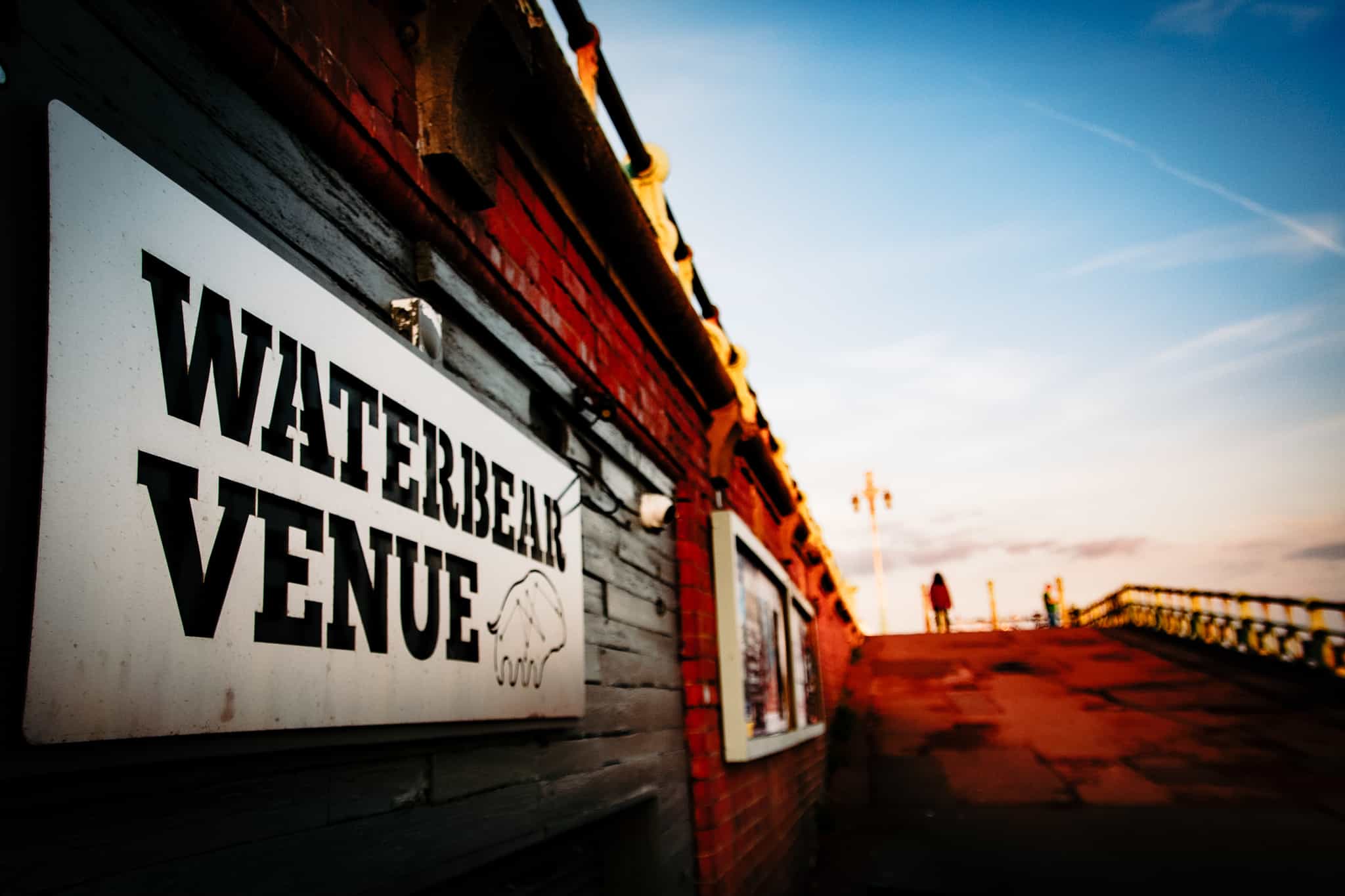
With the world currently suspended in a new normal, you might be a little confused as to where to start with gigging. Although live music is currently off the table for a lot of venues and musicians, and with bands scrambling to get the few socially distant gigs available, it might be worthwhile to look towards the future and get a plan together for after this has all blown over.
Lockdown has been a trying time for the music industry, but for many of us, it has given us the time and space to knuckle down on fine-tuning our skills and songwriting. If you’ve found yourself writing and rehearsing heavily over the past few months, you might be thinking about booking in a gig or two when venues start opening again. If you’re not sure where to start when booking your very first gig - this article is for you!
Here are our top tips for booking your very first gig…
When trying to book gigs, it’s a good idea to show people that your house is in order; that your band is reliable and ready to get on stage. What can you show other bands, venues and promoters to put you in a good position for getting a gig?
Before reaching out to anyone ask yourself do I have…
Having these in place will prove that you’re ready to perform and give you something to show bands, venues and promoters.
The best place to start with your very first gig is in your local scene. This could be the pub down the road, with the bands from your town or city, and promoters that are familiar with your area. Almost every great band cut their teeth in their local scene, and as your experience grows so will your opportunities. Growing in your local scene is a fantastic way to meet other musicians and music industry workers that are accessible to a new band.
One of the most simple ways to get your first gig is to find bands of a similar genre in your area and send them a short message. Your message doesn’t have to be extensive and there are no explicit rules, but try to stick to these guidelines:
If the band puts on their own gigs at venues, they may well be on the lookout for support bands to bring fresh audience members to their gigs. If they gig through a promoter, they’ll be able to point you in the right direction in your local scene.
To find these bands you can:
Make sure you do your research to make sure you are contacting bands that are relevant to your genre, gigging level and area.
Music venues and pubs that put on gigs are a great place to start introducing yourself to when you are looking to gig. Do a little bit of research into the venues in your area. This can be as easy as searching on Google Maps, using a directory or taking a walk down the road to find a suitable venue. From there, look up their website or social media platforms to make sure they welcome the genre that you play and either send over a message or introduce yourself in person.
You will need to find out who puts on the gigs and how they operate. It only takes a little bit of nosing around on the internet, sending a message or popping into local venues to find out who the contacts for musicians and bands are. Different venues work in different ways to it’s a good idea to ask how the gigs work. Does the venue put together band nights, work with specific promoters to put together gigs, or do they allow bands to put on their own gigs using the venue? Are there fees for putting on a gig and can you charge on the door? It’s not a one-size-fits-all deal so ask appropriate questions to build a picture of what is expected of you and how you can get your foot in the door.
Once you’ve spoken to local bands and venues, you may find it useful to get in touch with local promoters. A good promoter will have an idea of how your local scene runs, and may potentially have support slots to fill. You can find local promoters through searching online, through music directories such as theunsignedguide.com, through bands, venues and stamped all over promotional posters.
Another idea of sorting some of your first gigs is to offer gig swaps to another band in a similar genre, at a similar level, perhaps in the next town or city over. If you’re putting on your own gig, this is a good way to fill mutually beneficial support slots and gives you the opportunity to grow together with other bands.
If your music set up allows for it, try your hand at open mics. They’re a good way to play in front of an audience if you haven’t built up a big following yet, and help to build confidence for when you book your own gigs. Many pubs advertise open mics on their socials and in their venues.
If you’re too young to play in a regular music venue or pub, the best solution is to put on your own gigs in other venues and invite all your friends and family down.
Here are some of the places you could look at for putting on your first gig:
Being creative in this way will build skills such as adaptability and resourcefulness which will be even more useful later on in your journey.
When you pencil in that very first gig, it pays to make a good impression. If venues or the other bands you perform with appreciate what you’re bringing to the table, you may be invited back. Building great relationships helps to build your band’s momentum and expand your opportunities.
Here are a few important tips for making the most of it:
Local scenes are relatively small, so word will go around if you put on a good show or if there is any negative backlash. Make sure you’re not remembered for the latter. Focus on building great relationships, adding value to other bands and venues, and give yourself the best chance of growing a great name and buzz around your music.
While we are still living through the COVID pandemic, and with many venues still closed or limiting performance, consider gigging online. Putting together a set and performing it live through YouTube, Twitch, Facebook, Instagram Live or similar platforms can help keep a buzz around your music and build momentum for your live gigs in the future.

- ‘Water bear’ is the common name for a Tardigrade.
- Tardigrades are micro creatures, found everywhere on earth.
- They are the most resilient creatures known.
- They can survive and adapt to their surroundings, even in outer space.
- Their resilience and ability to adapt and survive inspires us in everything we do. We love them.


WaterBear Education Ltd, Hanover House,
118 Queens Road, Brighton BN1 3XG, UK Map
Email: [email protected]
Tel: +44 (0) 1273 726230
WaterBear Sheffield, Unit 4, Gatecrasher,
49 Eyre Lane, Sheffield S1 4RB, UK
Email: [email protected]
Tel: +44 (0) 1143 992720

WaterBear Education Ltd, Hanover House,
118 Queens Road, Brighton BN1 3XG, UK Map
Email: [email protected]
Tel: +44 (0) 1273 726230
WaterBear Sheffield, Unit 4, Gatecrasher,
49 Eyre Lane, Sheffield S1 4RB, UK
Email: [email protected]
Tel: +44 (0) 1143 992720
- ‘Water bear’ is the common name for a Tardigrade.
- Tardigrades are micro creatures, found everywhere on earth.
- They are the most resilient creatures known.
- They can survive and adapt to their surroundings, even in outer space.
- Their resilience and ability to adapt and survive inspires us in everything we do. We love them.
